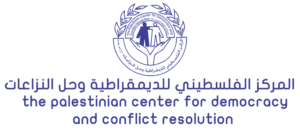Advanced Step towards Justice in Gaza Strip
Project title: Advanced Step towards Justice in Gaza Strip.
Donor: UNDP
Thematic Programme: Democracy, Human Rights and Good Governance.
Target group: Male and female prisoners, women and widows, vulnerable people (seprated couples, detainees, preparatory schools’ students, researchers, lawyers and stakeholders).
Implementation period: 6 months (1/9/2017 – 28/2/2018)
Description:
Within the framework of achieving the objectives of the project, which are mentioned, many activities have been carried out which directly contributed to achieving the desired objectives. In terms of providing legal aid, the legal assistance services represented by consultation and representation before the courts and mediation were provided to 425 cases involving vulnerable groups of women and children to bank up their rights, and the prisoners in the rehabilitation centers to enable them to obtain fair trials, as well it was followed up and received 49 cases of the family forum and were able to achieve safe viewing of children and their separated parents.
According to the implementation of legal awareness, 205 prisoners were brought to the attention of legal subjects on the risks of crime and their impact on the individual and society. On the same context, 17,708 male and female secondary school students were educated about the same subject. We also devoted a radio episode to the audience via “People Radio” on the same subject. As a result, we have exceeded the required number in the project.
Two roundtable meetings were held on which were about the legislative and executive status of custody and annexation cases, analytical and legal review in a presence of the Al Sharia’ah Courts and a group of lawyers. A legal review has been prepared to amend the custody provisions and has been presented to the technical office of the Al Sharia’ah Courts for review and a decision regarding the custody of widows, which is still being studied by the Technical Office.
At the second Roundtable meeting that was about “Rapid trials to reduce overcrowding in rehabilitation centers, police officers and mechanisms for sustainable activation” in a presence of representatives of the Public Prosecution, the prison administration and specialized lawyers, the issue was discussed. As a result, it was decided to format a committee under the supervision of the PCDCR’s secretary, with a membership of the judiciary, the prosecution and the directorate of reform and rehabilitation center. The aim is to prepare for the speedy trials of those who wish to stand trial as offenders in order to reduce overcrowding in prisons.
Regarding to the events of dispute with the law in Al’Rabe’e institution, 20 social and psychological counselors, behavioral monitors and juvenile workers were trained to develop their capacity to deal with juveniles in conflict with the law. In addition, a specialized legal study has been prepared to examine the causes of the social, psychological, legal and rehabilitation factors that lead to juveniles in conflict with the law abandoned by the Spring Foundation to return to delinquency again.
The subject of the study is one of the topics that have not been discussed previously in Palestine, so we expect the results will be based on them, to work with the events and achieve a better reform and rehabilitation.
Objectives:
- PCDCR will provide legal aid for vulnerable women in Khanyounis Governorate through Al Sharia’ah Courts.
- PCDCR will enhance prompt justice for vulnerable detainees in (Gaza, North area and Khanyounis) in rehabilitation centers.
- PCDCR will raise legal awareness of prisoners and detainees relevant to Human Rights& their legal rights.
- PCDCR will build the capacities of the service providers in judicial and prosecutions dealing with children in conflict with law.
- PCDCR will enhance the role of the CBOs in protecting children towards the drugs risks.
- PCDCR will contribute to enhance rule of law.
Activities:
- Training course.
- Interviews.
- Focus groups.
- Designing suitable tools.
- Questionnaires.
- Awareness raising sessions.



